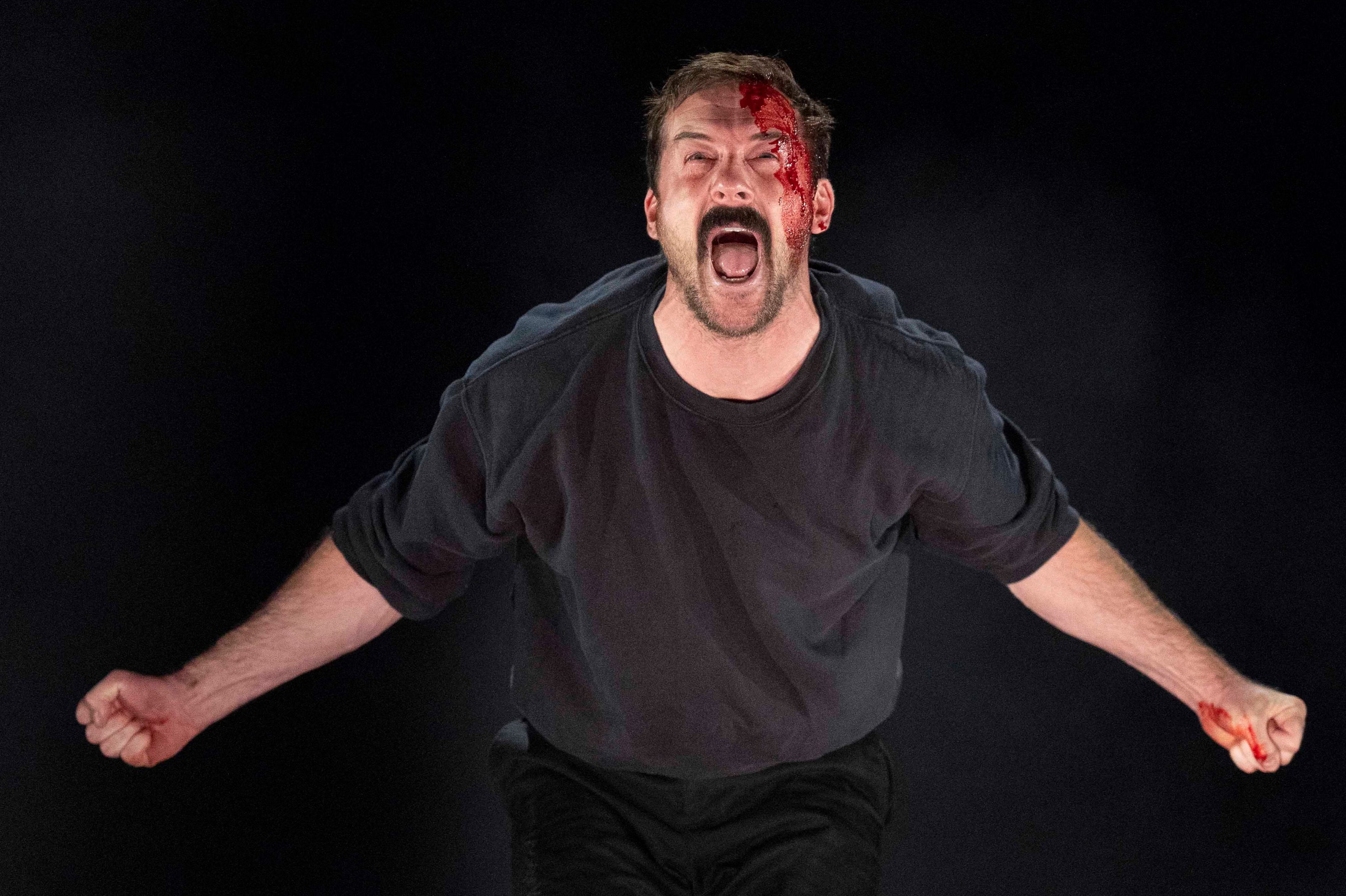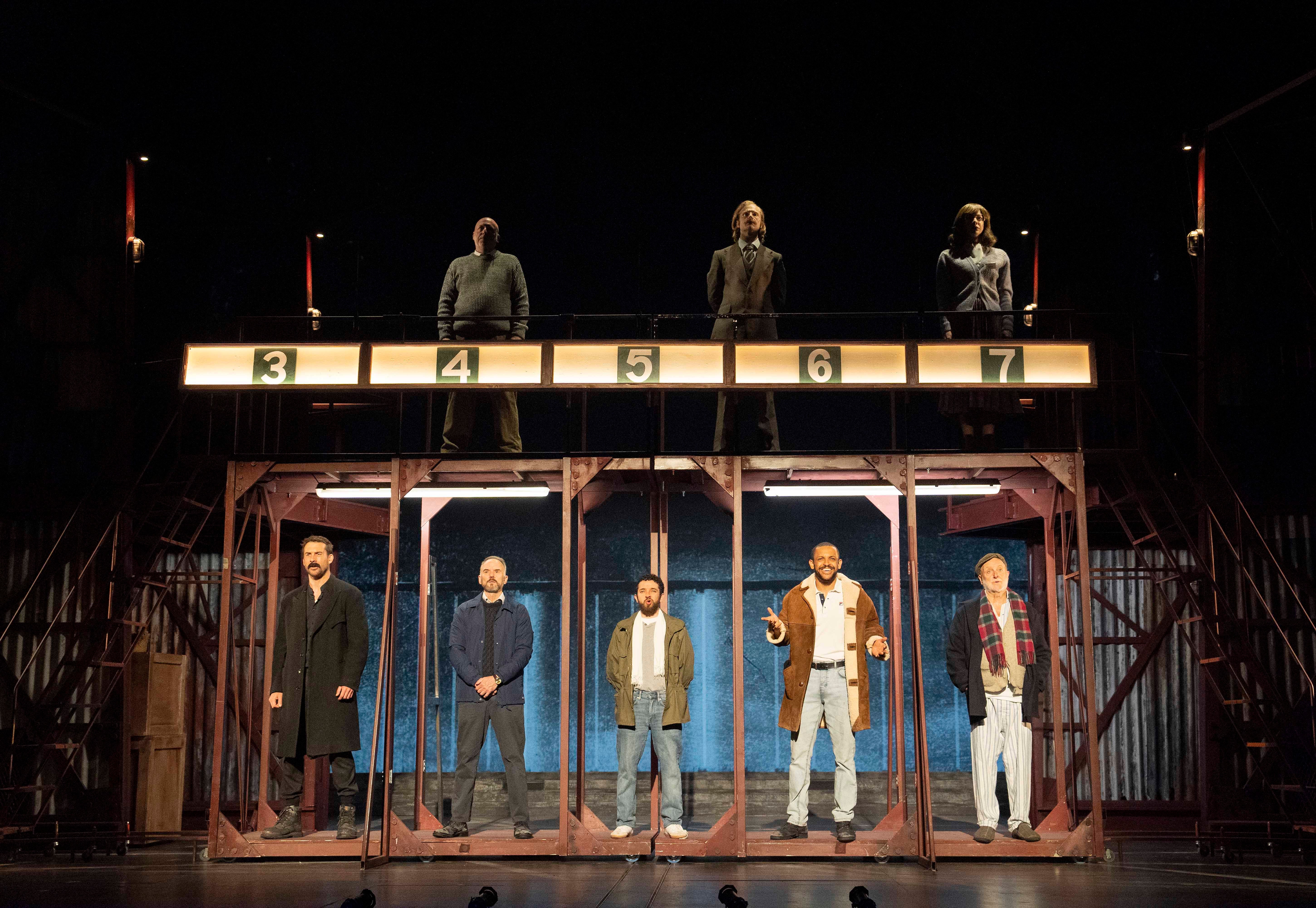Boys from the Blackstuff review: Alan Bleasdale adaptation needs to feel more like a play for today
Leading political playwright James Graham is burdened by the need to preserve this classic piece of writing about unemployed men in 1980s Liverpool, but the show comes alive when it finds the raw edges of poverty and desperation

Your support helps us to tell the story
From reproductive rights to climate change to Big Tech, The Independent is on the ground when the story is developing. Whether it's investigating the financials of Elon Musk's pro-Trump PAC or producing our latest documentary, 'The A Word', which shines a light on the American women fighting for reproductive rights, we know how important it is to parse out the facts from the messaging.
At such a critical moment in US history, we need reporters on the ground. Your donation allows us to keep sending journalists to speak to both sides of the story.
The Independent is trusted by Americans across the entire political spectrum. And unlike many other quality news outlets, we choose not to lock Americans out of our reporting and analysis with paywalls. We believe quality journalism should be available to everyone, paid for by those who can afford it.
Your support makes all the difference.There haven’t been many better bits of telly than the five episodes that make up Boys from the Blackstuff, the seminal series by Alan Bleasdale about a group of tarmac layers in Liverpool in 1982, each cracking under the pressures of unemployment. It started life as a BBC Play for Today before widening out into a series that was bleak and hard-hitting, but also funny and surreal, slow and lyrical, and absolutely gripping.
Forty years later, it has become a stage adaptation. This one has the good fortune of James Graham, the UK’s political playwright par excellence, handling the precious goods, and when it opened at Liverpool’s Royal Court Theatre last year strong reviews followed in its wake. Now it’s on the Southbank (before a West End run), and perhaps landing more softly than it did on the streets where it’s set.
It’s immediately clear exactly which streets we’re talking about: Amy Jane Cook’s industrial set plonks us on the Liverpool docks, all gantries and girders and rusty corrugated iron. The lads file in to report to the dole office, while the dole “sniffers” remain in a permanent state of suspicion that the lads are doing cash-in-hand jobs. Which they are. This sets off a game of cat-and-mouse that propels the first half of the production.
But Graham’s mashing of the show’s discrete storylines into one play feels lumpy. The first half takes a while to get out of montage mode, only settling just before the interval. Then when we come back it’s all denouement: every scene feels like the penultimate scene. The strength of Bleasdale’s material is a blessing and a curse. Graham feels the need to preserve it, but that stops the play becoming something that coheres in its own right.
Kate Wasserberg’s chunky production is a similarly vexed mix of functional and imaginative. There are lots of scenes that just allow a couple of characters to talk in the middle of the stage, but when inertia threatens to set in, something will happen to push it away: the cast singing a shanty, or a bit of clever slow-motion.
The good moments are really, really good – and usually they involve Barry Sloane’s Yosser Hughes, half-man half-moustache, the character who came to symbolise mass unemployment in the Eighties. There’s a huge debt to Bernard Hill of course, who played Yosser in the original series and died just a couple of weeks ago, but Sloane makes the part his own. From the moment he comes on he’s at breaking point: we can see it in the way his arms are pumped and tense, gorilla-style, the way his voice growls. And if he’s that tightly coiled from the beginning then there’s nowhere for him to go…except to break.
That’s where Graham nails it, not on the structural level but in its guts. The emotional punch is the same as it was 40 years ago: no missing the fact that this is about pride, hope, hard work – and the ripping away of those things by Thatcher’s government. The whole second half consists of moments of desperation, of men about to snap, coming one after the other: Nathan McMullen’s kindly Chrissie wondering whether to stick to his principles or feed his family, Mark Womack’s security guard Dixie forced into taking bribes.

And Yosser, of course, who most of all keeps the sadness and the comedy of Boys from the Blackstuff so tightly bound together. Sloane is ridiculous in his absurdly masculine swagger, and his insistence that he could do any job better than the person who’s actually doing it: bricklayer, priest, lollipop lady. “I could do that” is the line, always. It’s that ridiculousness that makes the tragedy so tragic when it all falls apart for him, culminating in an amazing slow-motion fight scene. He leaves the stage slowly beating his heart; it’s devastating.
It’s only when Graham finds those raw edges – poverty, desperation, the uselessness of hard-nosed masculinity – that the show comes alive. Too often, though, it’s a tribute to a series from 40 years ago, rather than a play for today.
National Theatre, until 8 June. Garrick Theatre, 13 June to 3 August
Join our commenting forum
Join thought-provoking conversations, follow other Independent readers and see their replies
Comments